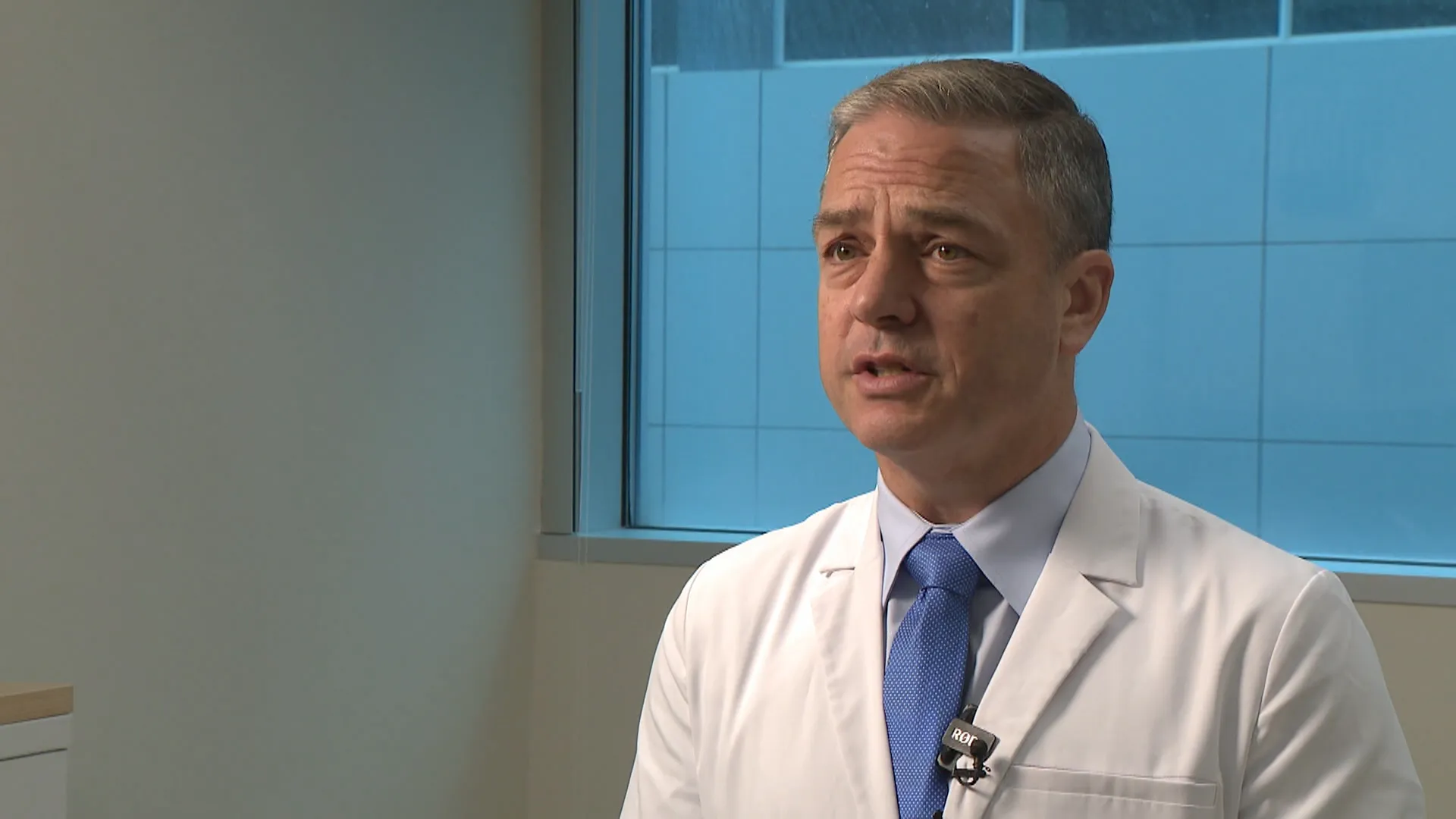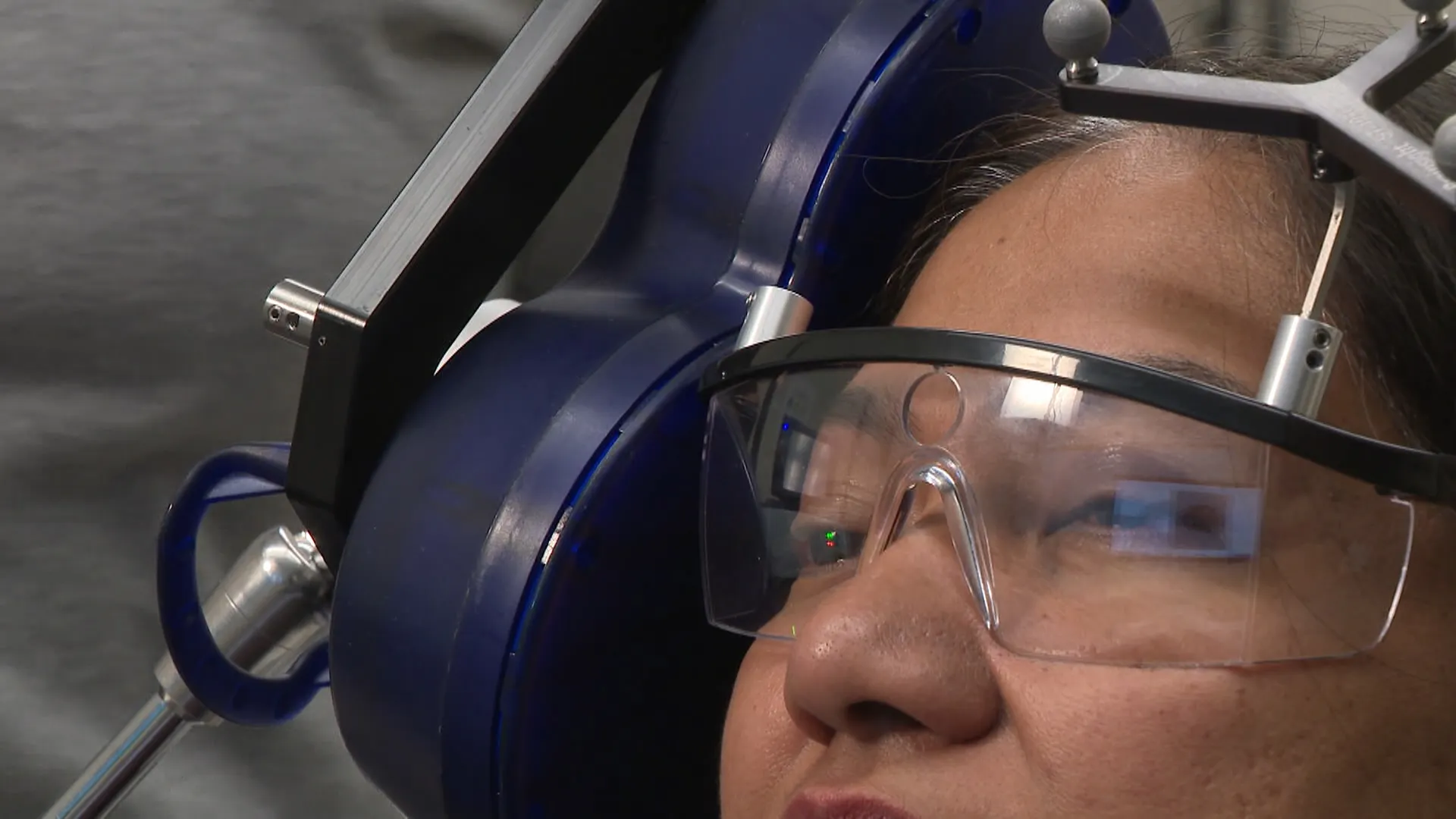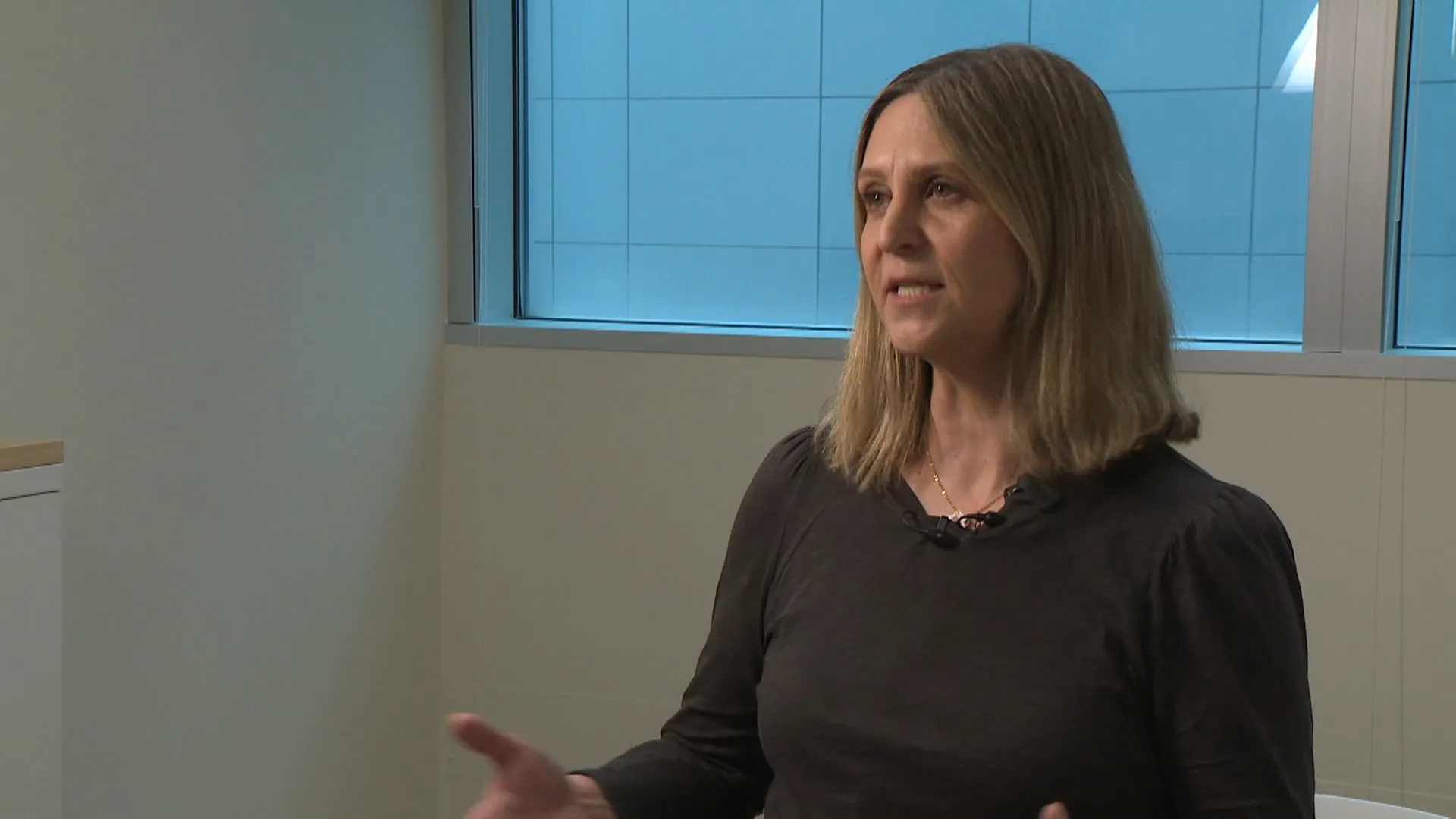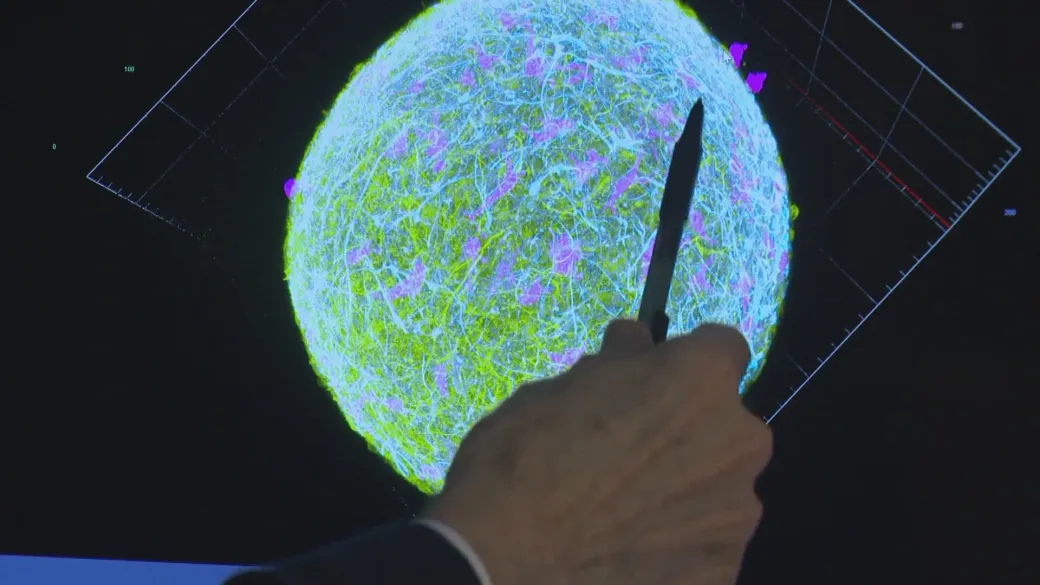Research being done at the University of Calgary’s Hotchkiss Brain Institute is providing hope for patients struggling with aphasia — a condition that hampers a person’s ability to speak or formulate words and sentences following a stroke.

The study led by Dr. Sean Dukelow, who has worked with stroke patients for more than 20 years, is investigating whether transcranial magnetic stimulation (TMS) — a procedure that uses magnetic fields to stimulate nerve cells in the brain — combined with intensive speech therapy, could improve patients’ recovery from aphasia post-stroke.
 View image in full screen
View image in full screen
“What this does is it seems to augment the therapy that our speech language pathologists are doing with the patients — and what we saw is really big changes in the patients,” said Dukelow.
“The majority of us have language on the left side of our brain — we are born that way, we’re wired that way — and what happens after a stroke to the left side of the brain is language, in many cases, shifts over the right side, and it’s not well-equipped to handle language and so people have trouble speaking or communicating as a result,” Dukelow continued.
“With this treatment, what we’re doing is pushing language back into the left hemisphere — the left side of the brain where it belongs — and people seem to do better as a result of that.”
 View image in full screen
View image in full screen
The research involves sending an electromagnetic pulse to a specific area of the brain.
“We’re decreasing how excitable that area of the brain is,” said Dukelow. “Our brain conducts electricity, and we can effectively tamp it down with the device — and by tamping it down, we can then excite the other side of the brain so that it’s more active.”
So far, there have been 44 stroke patients involved — all of them at least six months post-stroke — the time when Dukelow said most patients have lost hope in their ability to recover further.
 View image in full screen
View image in full screen
During the study, the patients were separated into two groups with both given two weeks of intensive speech therapy. Only one group received TMS, though they all believed they were.
Researchers said while all the participants showed some level of speech improvement, the improvements observed in the group that received TMS were “significant.”
Lucy Malloor is one of the patients involved in the study.
She could speak four languages before she had a stroke and completely lost her ability to speak.
“It was frustrating,” Malloor said. “In the beginning, I couldn’t speak at all. I was five months in the hospital. I had to re-learn everything.”
She’s now regained the ability to speak two languages.
“I’m working now and I have a car and I’m doing everything I could in the past — the aphasia is still there but it’s beginning to go away,” added Malloor.
Researchers saw improvements not only in the confidence and mood of participants, but some also gained additional movement in their arm and hand.
“Overall, we saw a lot of people making functional gains, which was incredible to see,” said speech-language pathologist, Shannan Love. “The results are very encouraging — it’s got great potential in terms of augmenting what we do as speech pathologists,” said Love.
 View image in full screen
View image in full screen
Researchers are now hoping to do a much larger study involving more participants.
One question they’ll be looking to answer is whether using TMS to stimulate the left side of the brain will negatively impact the right side of the brain.
“Are we stealing from Peter to pay Paul — we don’t know that, and it’s certainly something we haven’t seen in the first three months after a stroke,” said Dukelow.
“As we follow patients in the longer term — will we see there’s a negative connotation,” added Dukelow. “The reality is — we prioritize things in our lives — and the ability to speak and communicate is a high priority for most people.”

Heart health is crucial for overall well-being. Learn how to keep your heart healthy with these simple lifestyle changes, expert tips, and the latest medical advancements.